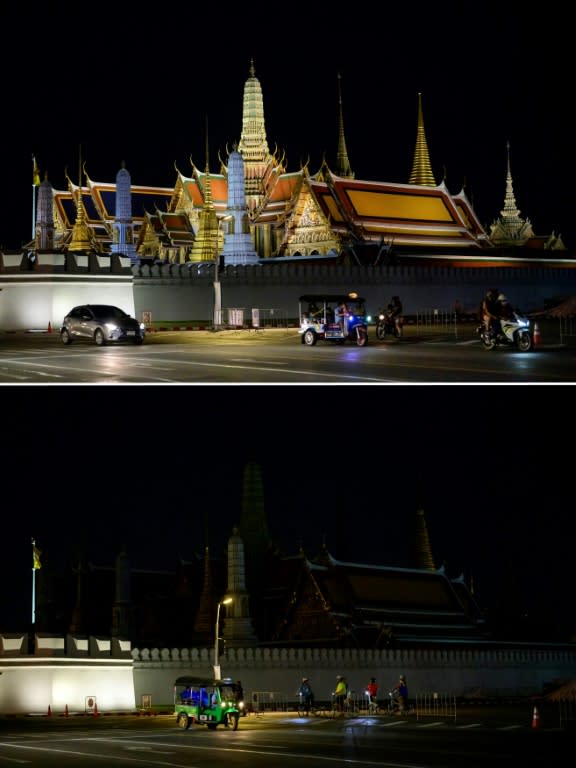Cities around the world were turning off their lights on Saturday for Earth Hour, with this year’s event highlighting the link between the destruction of nature and the increase in outbreaks of diseases like Covid-19.
In London, the Houses of Parliament, the London Eye ferris wheel, the Shard skyscraper and the neon signs at Piccadilly Circus were among the landmarks that triggered the switches.
“It is fantastic news that parliament is once again participating in Earth Hour, bringing together landmarks across the country and the world to raise awareness of climate change,” said Lindsay Hoyle, President of the House of Commons.
“This shows our commitment to improving sustainability … and that we are doing our part to reduce energy consumption,” he said.
In Paris, the three stages of the Tour Eiffel progressively darkened, but there were few people to watch with the whole country under the Covid-19 curfew at 7pm.
The giant metal tower has been closed to the public since October 30, due to the pandemic.
In Rome, the lights went out at the 2,000-year-old Colosseum in Rome, while the police applying restrictions to the movement of the coronavirus in Italy checked the roles of a small crowd of onlookers.
– Harmful human activity –
Asia kicked off the event after night fell as the metropolis skyline from Singapore to Hong Kong darkened, as well as historic landmarks, including Sydney Opera House.
The Brandenburg Gate in Berlin and the Moscow Kremlin on Red Square have also joined the annual initiative that calls for action on climate change and the environment.
After Europe, Earth Hour moves west to the Americas with the Empire State Building in New York, the Obelisk of Buenos Aires and the Museum of Tomorrow in Rio among the places that dim the lights.
For this year, organizers said they want to highlight the link between the destruction of the natural world and the increased incidence of disease – such as Covid-19 – that is moving from animals to humans.
Experts believe that human activity, such as widespread deforestation, destruction of animal habitats and climate change, are spurring this increase, and warn that more pandemics can occur if nothing is done.
“Whether the decline of pollinators, the decline of fish in the oceans and rivers, the disappearance of forests or the broader loss of biodiversity, there is growing evidence that nature is in free fall,” said Marco Lambertini, director general of WWF , which organizes Earth Hour.
“And this is due to the way we live and manage our economies.
“Protecting nature is our moral responsibility, but losing it also increases our vulnerability to pandemics, accelerates climate change and threatens our food security.”
In Singapore, people on the waterfront saw the skyscrapers darken and in a nearby park, Gardens by the Bay, a group of futuristic-looking tree sculptures had their lights out.
– ‘Impact on the environment’ –
Earth Hour is “more than just saving energy, it’s more like remembering our impact on the environment,” Ian Tan, 18, told AFP at the park.
But he was not convinced that the event, which has been going on since 2007, made a big difference.
“An hour is not enough to remember that climate change is actually a problem – I don’t really see (Earth Hour) as something very significant,” he said.
In Hong Kong, people at observation points above the city watched as the lights dimmed in hordes of compacted skyscrapers, while in the South Korean capital Seoul, the historic Namdaemun gate darkened.
In Thailand, Bangkok’s ultra-popular CentralWorld mall was open until 8:30 pm before its outside windows darkened for an hour – although inside, the mall seemed to function normally.
drills / cla-sr / bp / har
